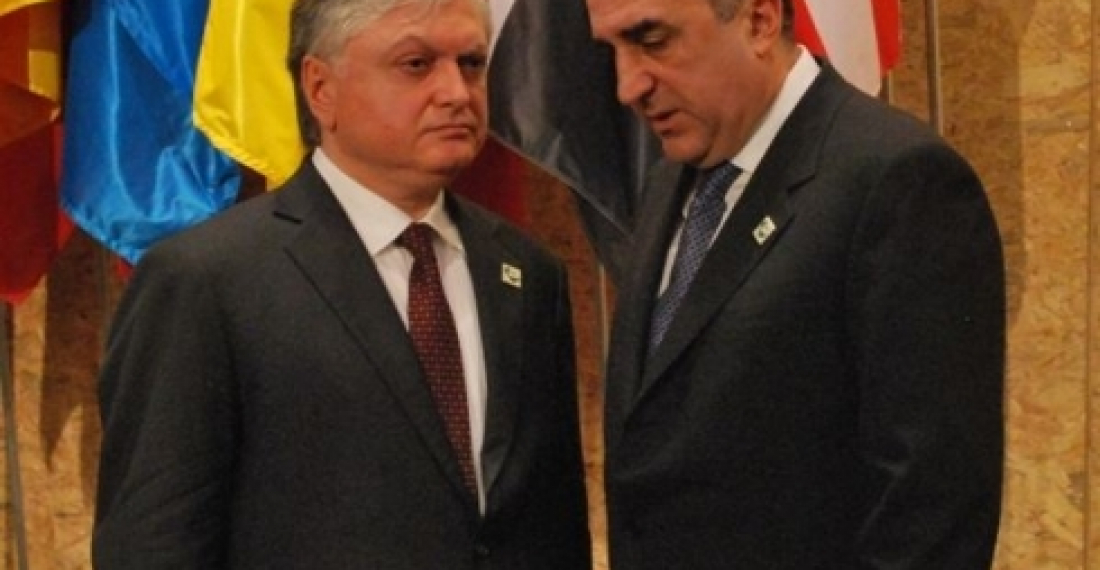- Armenia-Azerbaijan Strategic Expert Platform: Members emphasise the importance of the present moment for the South Caucasus and call for the momentum to be used for the long-term peace and prosperity of the region
- Thursday Interview: Dr. Anar Valiyev
- Food insecurity in Somalia has nearly doubled in the past year
- Türkiye evaluating potential measures in case of a US-Iran conflict
- European Parliament reaffirms support for Ukraine and EU Path
- EU moves ahead with Ukraine loan preparations despite Hungarian block
Foreign Ministers of Armenia and Azerbaijan meet in Vilnius

Foreign Ministers of Armenia and Azerbaijan, Edward Nalbandian and Elmar Mammadyarov, discussed perspectives of peaceful resolution of the Karabakh conflict in Vilnius, Monday, the Armenian Foreign Ministry press-service told ArmInfo.
The two parties also studied possibility of making a joint statement on the Karabakh conflict at the OSCE Ministerial meeting to open in Vilnius on Tuesday.
The two ministers met in the presence of the OSCE MG Co-Chairs Igor Popov of Russia, Robert Bradtke of USA and Bernard Fassier of France as well as the new French CO-Chair Jacques Faure and OSCE CiO Personal Representative Andrzej Kasprzyk.
The Nagorno-Karabakh conflict broke out on February 28 1988 in the Azerbaijani Sumgait with massacre of Armenians as a peculiar response of Azerbaijanis to the peaceful demand of the Nagorno-Karabakh autonomous Region, part of the Azerbaijani SSR, to unite with the Armenian SSR. This resulted in other pogroms of Armenians in Baku, Kirovabad and other regions of Azerbaijan populated with Armenians. In 1991 Azerbaijan unleashed war against peaceful populations of Nagorno-Karabakh, expulsing ethnic Armenians from the territory of Azerbaijan. Dozens of thousands of peaceful residents on both parties were killed in the military actions, and hundreds of thousands were left homeless and have become refugees. In 1994 in Bishkek in mediation of the OSCE MG, the NKR, Azerbaijan and Armenia signed a Protocol on Ceasefire that is observed more or less so far.








